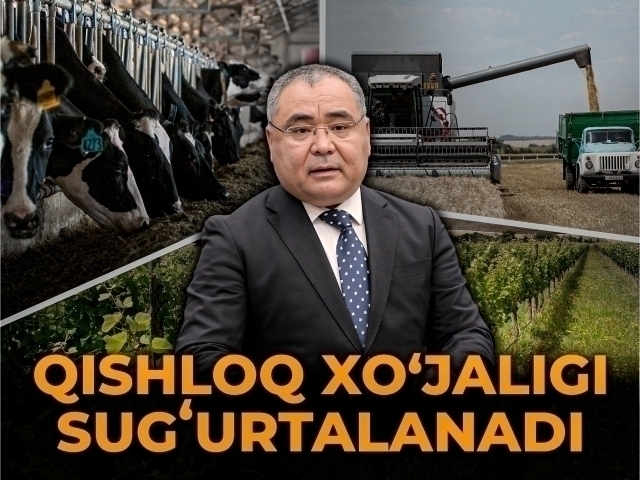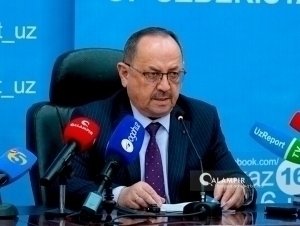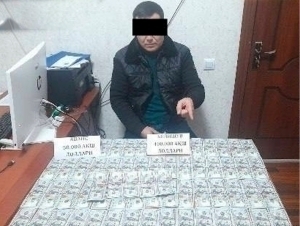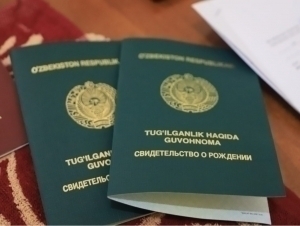Voluntary-compulsory: Agriculture to be insured
Review
−
08 March 2025 13120 5 minutes
A new law aimed at insuring agricultural risks has been submitted to the Senate for approval. The draft law outlines the creation of a specialized fund, the allocation of state subsidies, and the introduction of a voluntary-compulsory insurance system for agricultural producers.
About the draft law

During the extreme cold of winter 2023, frost damaged 9,000 hectares of orchards and 4,000 hectares of vineyards, resulting in a loss of 207,000 tons of crops. In response, President Shavkat Mirziyoyev instructed officials to develop measures to protect farmers from weather-related losses. As a result, in November 2023, the draft law “On Agricultural Risk Insurance” was introduced.
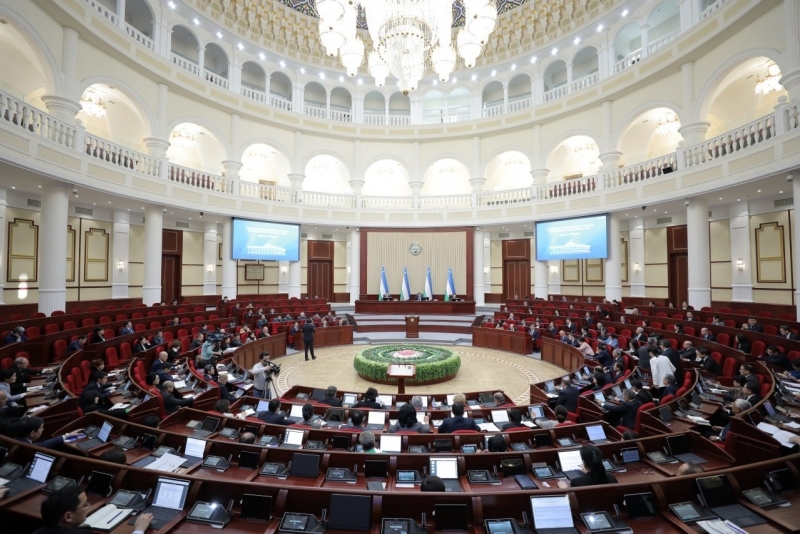
The Legislative Chamber of the Oliy Majlis held the first reading of the bill on January 7, 2024, followed by the second reading on March 4. If approved, the law—comprising seven chapters and 42 articles—will establish the "Agricultural Insurance Fund", which will serve as the central management body. The Ministry of Agriculture will oversee the fund's activities, while the Ministry of Economy and Finance will be responsible for its financing.
Budgetary burden
If the fund faces a shortfall, the state budget will cover the deficit. For 2025, the membership fee is projected at 60 billion sums, with the government already allocating 30 billion sums to cover half of it. Compensation for losses is set to begin in 2026.
To strengthen financial stability, the fund’s assets will be reinsured through international insurance companies. Additionally, an independent expert institute will be established under the management company to conduct on-site inspections and assess damages.
Under the draft law, agricultural producers will receive an insurance policy once they have paid 50% of their insurance premium. Insurance companies or other legal entities will act as intermediaries between the fund and agricultural producers.
Of the more than 777,000 agricultural producers who have received preferential loans, those who have already insured their activities will be required to continue doing so. For others, participation remains voluntary.
“Project defense”
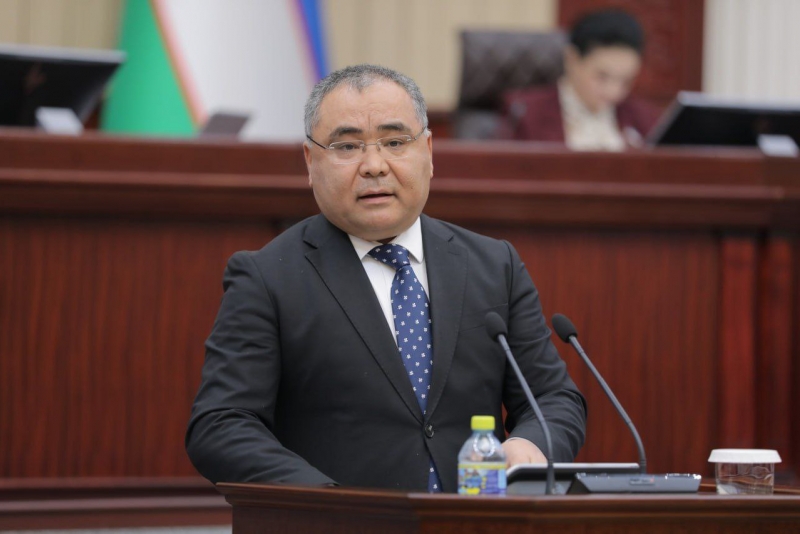
During the first reading of the bill, Minister of Agriculture Ibrohim Abdurakhmanov acknowledged that while Uzbekistan has an "Agrosugurta" system, a lack of funds and high risks have led to the abandonment of agricultural insurance. He attributed this, in part, to the absence of state financial support for the system.
In response to a question from Anvarkhon Temirov, a member of the People's Democratic Party, regarding potential corruption risks, Minister Abdurakhmanov stated:
"The processes will be digitized and integrated with other ministries and departments."
He emphasized that agricultural entities would be unable to submit false information, as weather conditions would be verified by Uzhydromet, water supply by the Ministry of Water Resources, fertilizer supply by "Uzkimyosanoat", and other relevant data by scientific organizations.
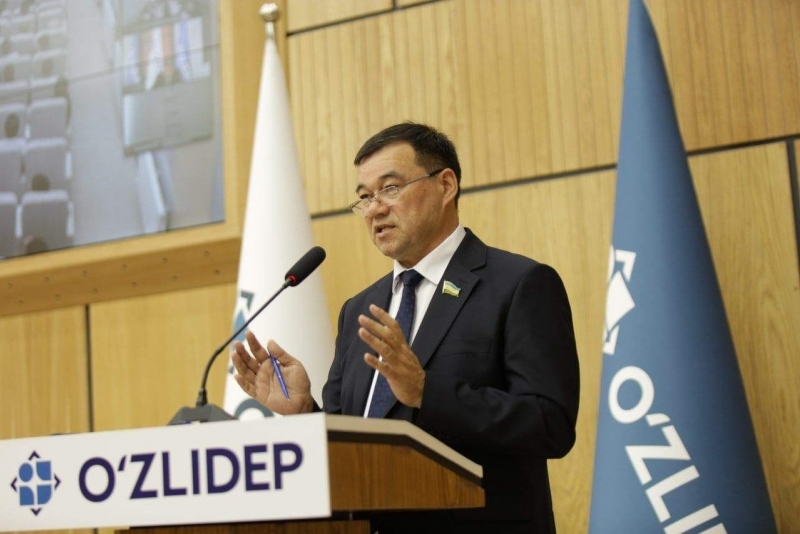
Zafar Khudoyberdiev, a member of the Liberal Democratic Party, questioned whether mandatory insurance or membership fees might be introduced if voluntary participation leads to financial shortfalls. Minister Abdurakhmanov responded:
"You know, insurance cannot be made mandatory. But the future of this system depends on how well it operates. I do not expect agricultural producers to fully insure their activities immediately, as they must first understand the benefits. The greatest risks—drought, soil salinization, and technological challenges—still lie ahead. The success of this system will depend on effective communication and organization."
One of the initiative’s specialists noted that membership fees will be calculated separately based on crop and livestock types and regional factors. These calculations will be detailed in a resolution by the Cabinet of Ministers. The rate for cotton and grain has already been set at 4%.

Noiba Inoyatova, a member of the Ecological Party of Uzbekistan, referenced Article 5 of the draft law, which outlines coverage for multiple risks, including:
- Natural disasters
- Fire
- Crop damage from diseases and pests
- Livestock death or poisoning from infectious diseases
- Damage to crops and livestock caused by wild animals
- Damage caused by third parties
Inoyatova then questioned who qualifies as a “third party” and whether it is appropriate for the state budget to cover damage caused by individuals.
Minister Abdurakhmanov acknowledged that the law does not explicitly define “third parties” but provided an example. Botir Usmonaliev, a representative of the Ministry of Economy and Finance, further explained:
"This provision was included based on foreign water management insurance models that we studied. However, intentional acts are not covered."
For reference, the second reading of the draft law expanded the list of risks to include man-made disasters, bringing the total number of covered risks to seven.
Insurance fees
Legislative Chamber deputy Abdumannop Buriev explained that insurance fees will vary based on the type of agricultural product, its market value, and regional factors.
For instance, if an insured crop is valued at 100 million sums, agricultural producers will pay 10% (10 million sums) to the fund. However, under the draft law, 50% of the premium is subsidized by the state. This means that farmers will pay only 5 million sums for 100 million sums worth of coverage, while the state budget will cover the remaining 5 million sums.
While the Ministry of Agriculture insists that digitization will help minimize corruption risks, complete elimination remains uncertain. The draft law offers potential benefits for farmers facing various risks, but concerns remain about the system’s effectiveness—especially given the significant state budget allocations involved.
Live
All